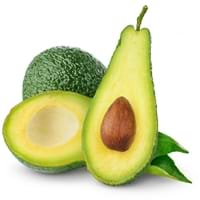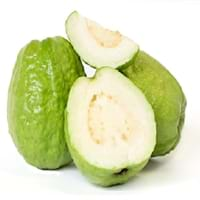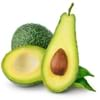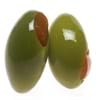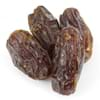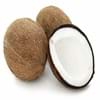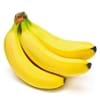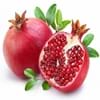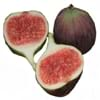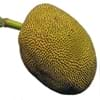Health Benefits
Cancer prevention, Natural detoxification, Osteoporosis prevention, Protection from chronic disease
Cancer prevention, Diarrhea treatment, Prevents constipation, Scurvy treatment, Treatment of dysentary
General Benefits
Boosts immune system, Controls blood pressure, Digestive aid, Improves eye vision, Maintains healthy cholesterol level
Controls blood pressure, Cures cough, Improves eye vision, Maintains healthy cholesterol level, Treatment of common cold
Skin Benefits
Brightens and lightens complexion, Reduces wrinkles, Skin cleansing, Treatment of dark spots
Anti-aging benefits, Brightens and lightens complexion, Hydrates skin, Treatment of skin diseases
Hair Benefits
Acts as moisturizer, Good conditioner, Protects hair, Regulates hair growth, Rejuvenates scalp, Remedy for split ends, Shiny hair, Softening mask
Prevents hair loss
Allergy Symptoms
Abdominal pains, Anaphylaxis, Inflammation, Itching, Latex Allergy, Nasal congestion, Skin Rashes, Swallowing difficulties, Swelling, Upset stomach, Vomiting, Wheezing
Breathing difficulty, Coughing, Runny nose, Sneezing, Swelling of mouth, tongue or lips, Wheezing
Side Effects
Allergic reaction, Hypersensitivity, Weight gain
Hair thinning, Nail thinning, Skin problems, Tooth decay, Weakness, Possibly unsafe during pregnancy
Best Time to Eat
Along with meal, As a snack in the late afternoon, Don't consume at night and before bed, Don't eat after meal
As a snack in the late afternoon, Don't consume at night and before bed, Eat the fresh ones, avoid mixing with any other foods, don't eat after meal., Morning time (before lunch)
Vitamin B5 (Pantothenic Acid)
Vitamin C (Ascorbic Acid)
Vitamin K (Phyllochinone)
Phytosterol
Not Available
Calories in Fresh Fruit with Peel
Calories in Fresh Fruit without Peel
Not Available
Not Available
Calories in Frozen Form
Not Available
Calories in Canned Form
Not Available
Type
Berry, Tree fruit, Tropical
Tree fruit, Tropical
Season
Summer
All seasons
Varieties
Bacon, Fuerte, Gwen, Hass, Lamb Hass, Pinkerton, Reed and Zutano
Lucknow 49, Allahabad Safeda, Chittidar, Harijha, Apple guava, Hafshi, Arka Mridula and Allahabad Surkha
Color
Dark green
Green, Pink, Yellow
Origin
Mexico, Central America
Central America, Mexico, South America
Soil Type
Decomposed Granite, Limestone, Sandy loam, Well-aerated
Loam, Rocky, Sandy
Climatic Conditions
Humid, Without frosts
Sunny
Facts about
- The oldest living avocado tree is found in University of California and was planted in 1879.
- Avocados can be swapped for butter in Baked Goods Recipes.
- Avocado ripens more quickly with a banana or an apple around.
- The black pigment in Guava leaves is used for textile applications.
- Guava leaves are used to make tea.
- Oils extracted from guava seeds are used in various cosmetics.
- Guava wood is used for decorative purposes.
Top Producer
Mexico
India
Other Countries
Chile, China, Colombia, Dominican Republic, Indonesia, Kenya, Mexico, Peru, Rwanda, United States of America
China, Indonesia, Mexico, Nigeria, Pakistan, Philippines, Thailand
Top Importer
United States of America
Canada
Top Exporter
Mexico
India
Botanical Name
Persea Americana
Psidium guajava
Synonym
Persea Gratissima
Not Available
Subkingdom
Tracheobionta
Tracheobionta
Division
Magnoliophyta
Magnoliophyta
Class
Magnoliopsida
Magnoliopsida
Subclass
Magnollidae
Rosidae
Family
Lauraceae
Myrtaceae
Species
P. Americana
Psidium guajava
Generic Group
Laurel
Myrtle
Difference Between Avocado and Guava
We might think that Avocado and Guava are similar with respect to nutritional value and health benefits. But the nutrient content of both fruits is different. Avocado and Guava Facts such as their taste, shape, color, and size are also distinct. The difference between Avocado and Guava is explained here.
The amount of calories in 100 gm of fresh Avocado and Guava with peel is 160.00 kcal and 68.00 kcal and the amount of calories without peel is Not Available and Not Available respectively. Thus, Avocado and Guava belong to High Calorie Fruits and Low Calorie Fruits category.These fruits might or might not differ with respect to their scientific classification. The order of Avocado and Guava is Laurales and Myrtales respectively. Avocado belongs to Lauraceae family and Guava belongs to Myrtaceae family. Avocado belongs to Persea genus of P. Americana species and Guava belongs to Psidium genus of Psidium guajava species. Beings plants, both fruits belong to Plantae Kingdom.
